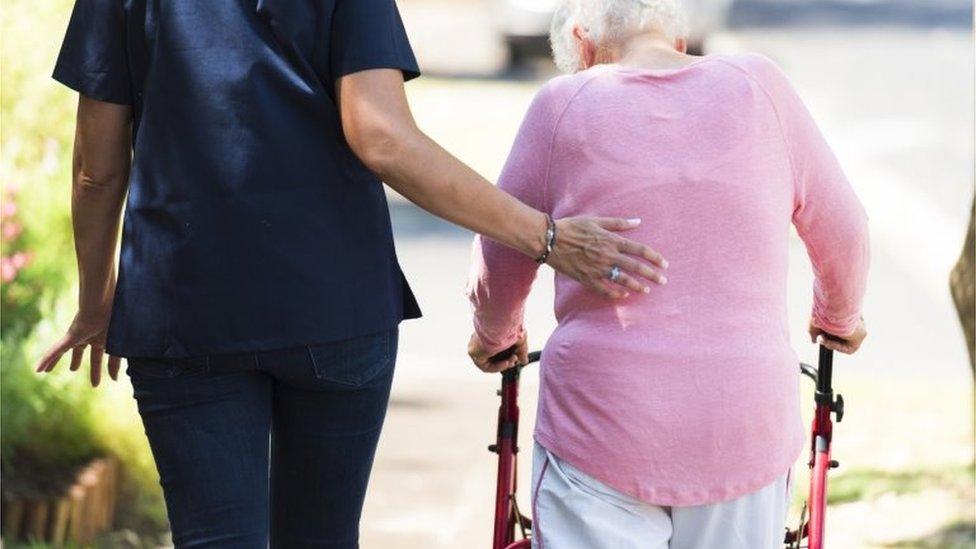Leisure centre cuts and tax hikes amid pandemic costs
- Published

Councils are considering cutting services after months of increased costs due to the coronavirus pandemic
Leisure centre closures, tax hikes and bus services cuts are all being considered as UK councils grapple with the costs of the coronavirus crisis.
Councillors say they face "difficult financial decisions ahead" as they draw up emergency spending plans.
More than £3.7bn has been given to councils to cover costs since the pandemic struck in March, but most forecast black holes in their budgets.
The government says it has given authorities "unprecedented support".
In June, a BBC investigation found, out of 173 upper tier local authorities which responded, 148 predicted a combined budget shortfall of at least £3.2bn.
Several councils have since outlined initial plans to cut services to address funding gaps.
Councillors in Milton Keynes said it was likely "a number of local services" would be hit by cuts in the short term, external, the first being bus services.
"If we don't have an announcement [of further funding] this month from central government, we will have to take decisions around bus services in October," Councillor Rob Middleton said.
He added it was "also likely that leisure services are one of the areas that are going to be hit hardest, and decisions are probably going to have to be made before Christmas".
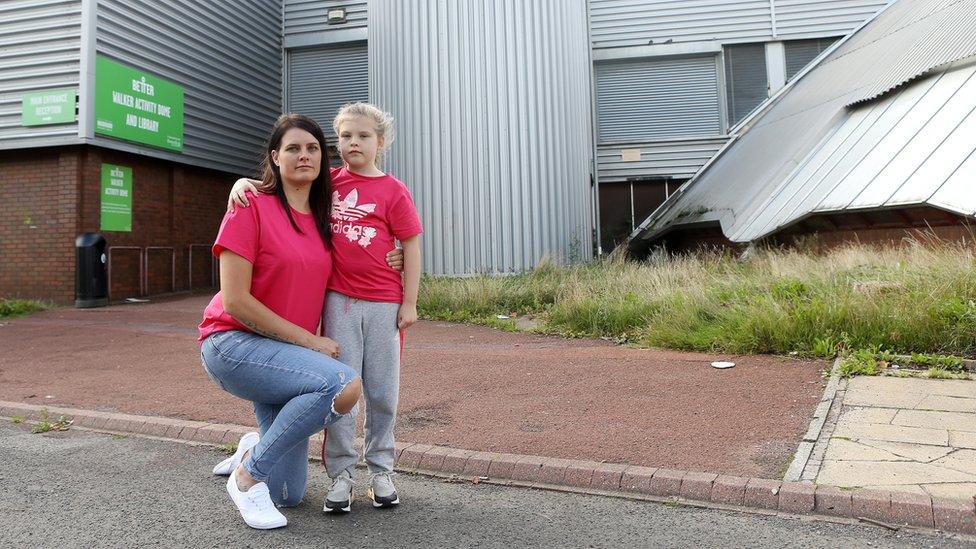
Hannah Taylor in Newcastle started a petition to reopen a leisure centre which is closed indefinitely
In Newcastle, several public leisure centres, run by Greenwich Leisure Limited, have been closed, external "until the impact of the pandemic...is clearer", despite a loan from a £5m emergency fund to help businesses set up by the council.
Hannah Taylor, who started a petition to save the Walker Activity Dome facility in the city, said it was a "huge part of the community" and people were "devastated" it had been closed.

THE R NUMBER: What it means and why it matters
TESTING: What tests are available?
LOOK-UP TOOL: How many cases in your area?
LOCAL LOCKDOWNS: What happens if you have one?
SOCIAL LIFE: Is it safe to go to the pub?

Councils are struggling financially because of lost business rates, council tax holidays and emergency payments for families whose incomes have disappeared, at the same time as rising costs of adult care and providing protective equipment (PPE) for carers.
Some of those councils would also typically depend on tourism for large chunks of income, such as dividends from airports they own or parking fees from visitors.
Cuts proposed now include reducing the amount being paid to councillors in allowances, being explored by Kent County Council, which has tabled an emergency budget, external.
In West Berkshire, the council has revealed plans, external to consider the maximum council tax hike possible without a referendum (3.99%) for the next two years.
Many authorities, including Oxfordshire, Newcastle, Lewisham and Cherwell are also looking at recruitment freezes in departments such as customer services and housing.
£3.2bnOver March and April
£500mIn July
Redbridge Council recently launched a survey, external to find out what services "matter the most" to residents, before addressing the "daunting prospect" of making cuts "to the tune of £83m" over the next few years.
Councillor Kam Rai, Redbridge Council's deputy leader, said the government had put councils in an "impossible position" after the loss of "promised funding" to cover the costs of coronavirus.
"We now need to make difficult decisions about meeting ongoing local needs this year and over the next five years," he said.
A spokeswoman for the Ministry of Housing, Communities and Local Government (MHCLG) said: "We're giving councils unprecedented support during the pandemic with a £4.3bn package, including £3.7bn which is not ring-fenced and £600m to support social care providers.
"We will continue to work closely with councils as they support their communities through the pandemic and if any are concerned about their future financial position they should contact MHCLG."
Reporting team: Rob England and the Local Democracy Reporting Service
- Published2 July 2020
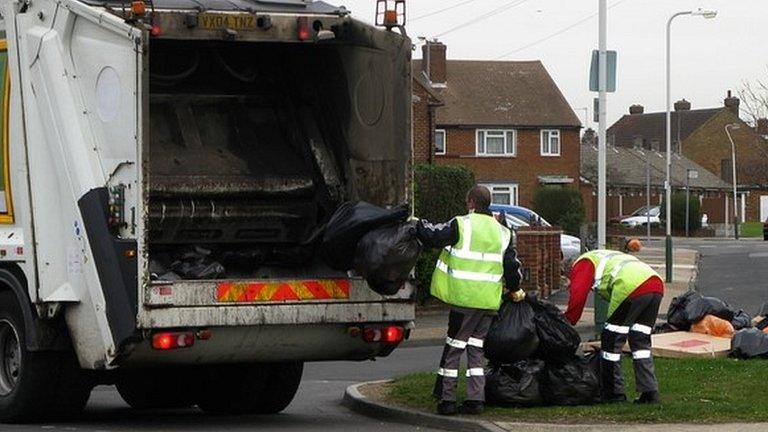
- Published25 June 2020
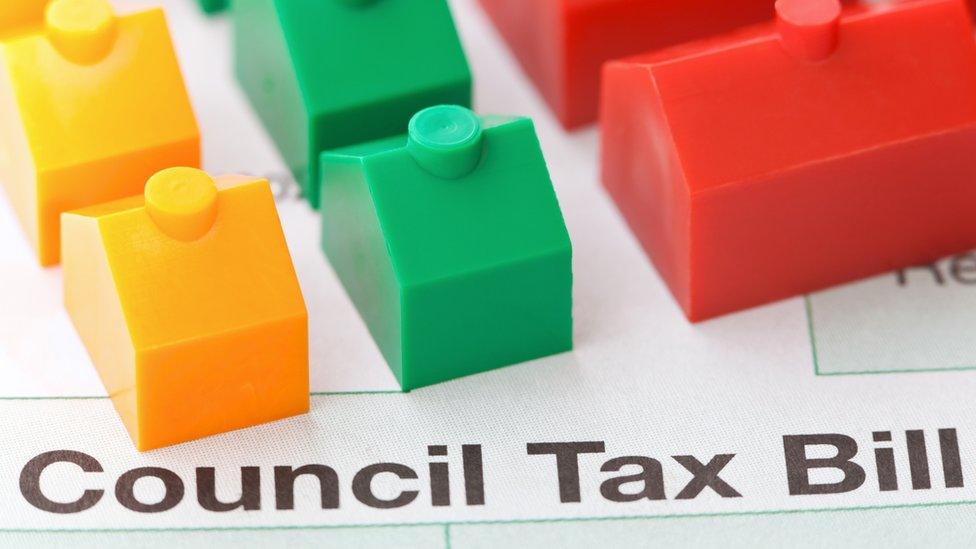
- Published17 June 2020
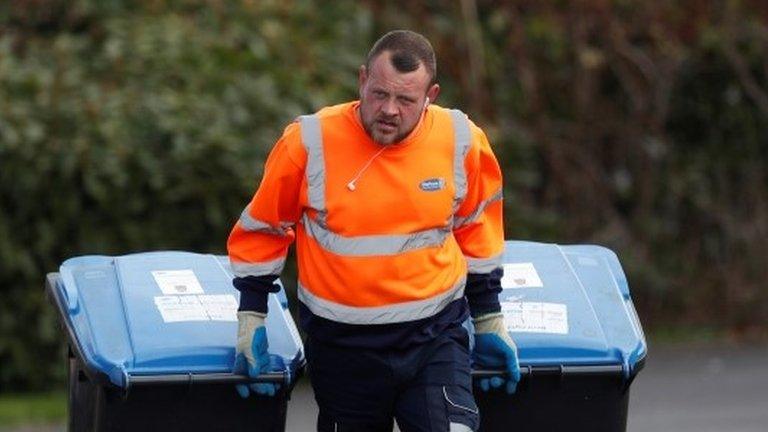
- Published17 May 2020
